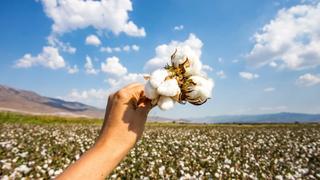The Bharatiya Kisan Sangh (BKS), a Rashtriya Swayamsevak Singh (RSS)-affiliated farmers’ group, urged the Centre here on Thursday to institute a minimum support price (MSP) of Rs.60,000/tonne for castor seeds.
Stating that India holds a near-monopoly position in castor production, farmers growing the oilseed should be protected from the present low prices hovering around Rs 35,000/tonne.
“We met Agriculture Minister Radha Mohan Singh when he visited Gujarat earlier. The Government has to put in place MSP for castor seed as also a minimum export price (MEP) of $1,800/tonne for its derivatives,” said Maganbhai Patel, President, BKS (Gujarat region).
The cost of cultivating castor is estimated at Rs. 6,000-7,000/quintal while prices have dropped from Rs.4,000/quintal to Rs.3,600 in the last two months. The crop is planted between June-July and harvested in January-February and there was an estimated carryover stock of 600,000 tonnes which further depressed prices.
Exporter-exchange nexus
Among the reasons cited by the BKS for castor growers’ woes, besides prices having slid by Rs.300/quintal, is the collusion between the country’s chief exporters of castor derivatives with commodity exchanges like the NCDEX to suppress prices and favour foreign buyers.
Officials named Jayant Agro Organics Ltd., Adani Wilmar and Gokul Refoils & Solvent Ltd. among the exporters for having failed to obtain attractive prices commensurate with the versatility of castor products from buyers abroad.
“Such low prices export sales depress domestic prices and hurt castor seed growers who are denied remunerative returns,” said Patel, adding that farmers had been asked by the BKS to not take their castor crop to the markets.
Castor oil finds a wide range of applications as a industry fuel, in the paper, paint and pharmaceutical industries and increasingly in cosmetics which is seeing a shift away from synthetic oils. Primary buyers included Dutch commodity service provider Nidera and a few importers in the EU, US and Japan.
Basmati comparison
“The Centre imposed MEP for basmati rice, why not for castor where demand is inelastic and is estimated to double over the next 10 years? Exporters have failed to tap end-users abroad,” said agriculture specialist G. Chandrashekhar.
He added that buyers abroad would pick up castor even if prices rose as evidenced in 2011-12 when prices hit $2,800/tonne. Even China, once a competitor, had now become a net importer. Currently, export prices are hovering around $1,200/tonne that are “unacceptably low” in a situation of declining prices and lower output, Chandrashekhar explained.
The Solvent Extractors’ Association of India has estimates castor production at 11.5 lakh tonnes (lt) this year, down from 16 lt in 2013-14.
Letter sent
The group also sent a letter to Singh dated March 11 where it outlined estimates of farmers’ losses due to non-procurement of foodgrains and damage from untimely rain. It also demanded that MSP for all agri-produce was to be determined on the basis of cost of cultivation and States be allowed to pay bonuses to farmers.
Additionally, it asked the Centre to purchase potato for Rs.8/kg while announcing an MSP for it, as also banning import of all agri-produce and providing subsidies on exports.






Comments
Comments have to be in English, and in full sentences. They cannot be abusive or personal. Please abide by our community guidelines for posting your comments.
We have migrated to a new commenting platform. If you are already a registered user of TheHindu Businessline and logged in, you may continue to engage with our articles. If you do not have an account please register and login to post comments. Users can access their older comments by logging into their accounts on Vuukle.